Filter by

When Children Draw Gods
This open access book explores how children draw god. It looks at children’s drawings collected in a large variety of cultural and religious traditions. Coverage demonstrates the richness of drawing as a method for studying representations of the divine. In the process, it also contributes to our understanding of this concept, its origins, and its development. This intercultural work bring…
- Edition
- 1
- ISBN/ISSN
- -
- Collation
- -
- Series Title
- New Approaches to the Scientific Study of Religion
- Call Number
- VIII, 569
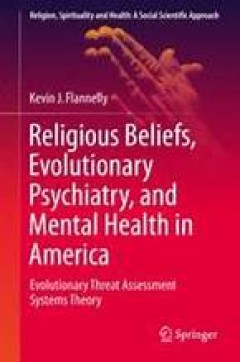
Religious Beliefs, Evolutionary Psychiatry, and Mental Health in America
This book provides a new perspective on the association between religious beliefs and mental health. The book is divided into five parts, the first of which traces the development of theories of organic evolution in the cultural and religious context before Charles Darwin. Part II describes the major evolutionary theories that Darwin proposed in his three books on evolution, and the religious, …
- Edition
- 1
- ISBN/ISSN
- 978-3-319-52488-7
- Collation
- Kedokteran
- Series Title
- Religion, Spirituality and Health: A Social Scientific Approach
- Call Number
- 617
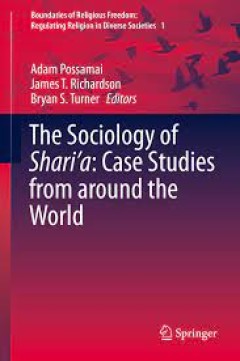
The Sociology of Shari’a: Case Studies from around the World
This edited volume offers a collection of papers that present a comparative analysis of the development of Shari’a in countries with Muslim minorities, such as America, Australia, Germany, and Italy, as well as countries with Muslim majorities, such as Malaysia, Bangladesh, Turkey, and Tunisia. The Sociology of Shari’a provides a global analysis of these important legal transformations a…
- Edition
- -
- ISBN/ISSN
- 978-3-319-09605-6
- Collation
- -
- Series Title
- -
- Call Number
- -
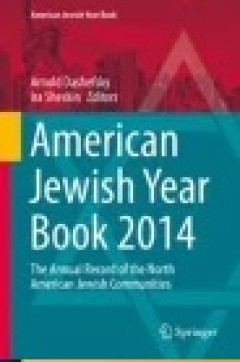
American Jewish Year Book 2014: The Annual Record of the North American Jewis…
This book, in its 114th year, provides insight into major trends in the North American Jewish communities, examining the recently completed Pew Report (A Portrait of Jewish American), gender in American Jewish life, national and Jewish communal affairs and the US and world Jewish population. It also acts as an important resource with lists of Jewish Institutions, Jewish periodicals and academic…
- Edition
- Ed. 1
- ISBN/ISSN
- 978-3-319-09623-0
- Collation
- XVIII, 923
- Series Title
- American Jewish Year Book
- Call Number
- 304.6 AME a

Reconciling Islam, Christianity and Judaism: Islam’s Special Role in Restor…
At the present time, when so-called Islamic radicalism, terrorism and Jihadism occupy major media space, with Islam often depicted as the main culprit, the book attempts a tour de force. It proposes that Islam is as much victim as culprit in the history that has led to the current hostility. This is because the common claims of both mainstream and radical Islam that Islam represents the high po…
- Edition
- -
- ISBN/ISSN
- 978-3-319-15548-7
- Collation
- -
- Series Title
- -
- Call Number
- 306.6

Wartime Schooling and Education Policy in the Second World War Catholic Educ…
This book deals with the development of private secondary schooling during the Second World War in Belgium. It focuses on how the German occupier used education to gain acceptance of the regime, and discusses the attitudes of Belgian education authorities, schools, teachers and pupils towards the German occupation. Suggesting that the occupation forced Belgian education authorities, such as the…
- Edition
- -
- ISBN/ISSN
- 978-1-137-52011-1
- Collation
- XII, 220
- Series Title
- -
- Call Number
- -
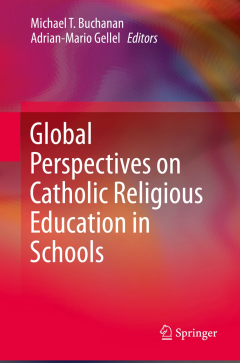
Global Perspectives on Catholic Religious Education in Schools
This book covers theoretical aspects of Catholic Religious Education in schools and examines them from multiple theoretical and contextual perspectives. It captures the contemporary academic and educational developments in the field of Religious Education while discussing in detail the challenges that Religious Educators face in different European, Asian, African, Australian, American and Latin…
- Edition
- -
- ISBN/ISSN
- 978-3-319-20924-1
- Collation
- XXIII, 305
- Series Title
- -
- Call Number
- 306.6 GLO
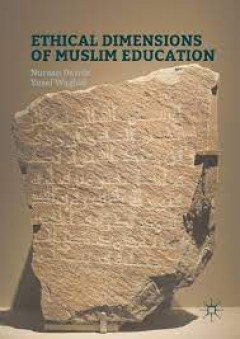
Ethical Dimensions of Muslim Education
This book draws upon ethical dimensions of Muslim education as a means through which to address contemporary issues, such as social and societal conflicts, exclusion and marginalisation, and violence. It argues that an ethical Muslim education is underscored by the practice of autonomous, critical and deliberative engagement that can engender reflective judgement, compassionate recognition and …
- Edition
- -
- ISBN/ISSN
- 978-3-319-29317-2
- Collation
- XXX, 162
- Series Title
- -
- Call Number
- -
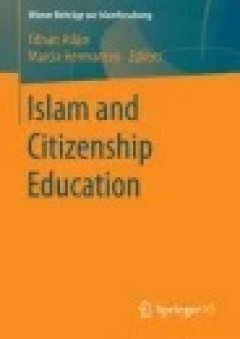
Islam and Citizenship Education
The scholarly contributors to this volume investigate various means to stimulate and facilitate reflection on new social relations while clarifying the contradictions between religious and social affiliation from different perspectives and experiences. They explore hindrances whose removal could enable Muslim children and youth to pursue equal participation in political and social life, and the…
- Edition
- -
- ISBN/ISSN
- 978-3-658-08603-9
- Collation
- -
- Series Title
- -
- Call Number
- -
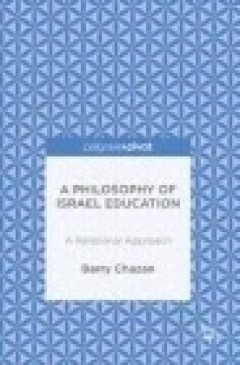
A Philosophy of Israel Education: A Relational Approach
This book develops a new philosophy of Israel education. “Person-centered” Israel education is concerned with developing in individual learners the ability to understand and make rational, emotional, and ethical decisions about Israel, and about the challenges Israel regularly faces, whether they be existential, spiritual, democratic, humanitarian, national, etc. Chazan begins by laying out…
- Edition
- Ed. 1
- ISBN/ISSN
- 978-3-319-30779-4
- Collation
- -
- Series Title
- -
- Call Number
- 200.11 CHA p
 Computer Science, Information & General Works
Computer Science, Information & General Works  Philosophy & Psychology
Philosophy & Psychology  Religion
Religion  Social Sciences
Social Sciences  Language
Language  Pure Science
Pure Science  Applied Sciences
Applied Sciences  Art & Recreation
Art & Recreation  Literature
Literature  History & Geography
History & Geography